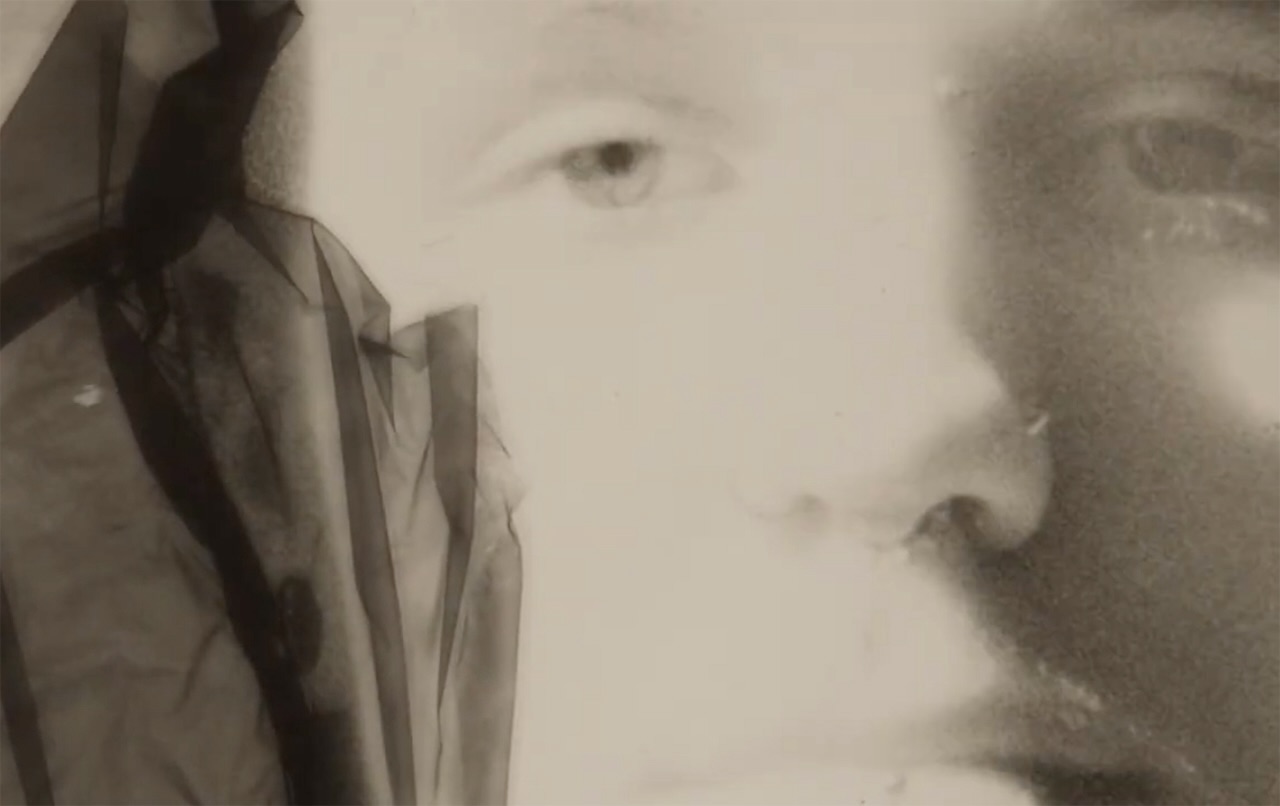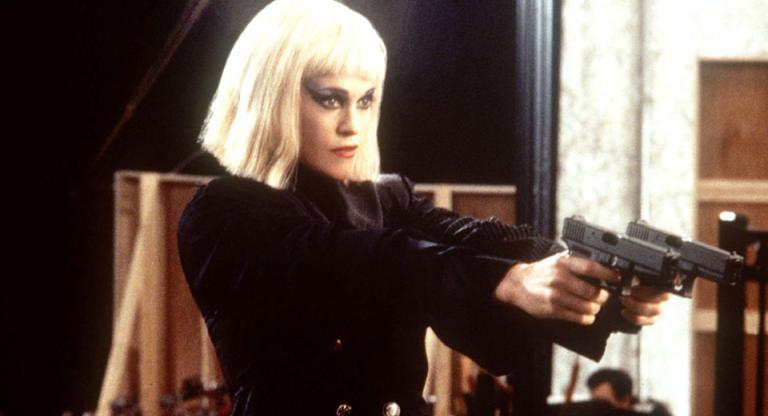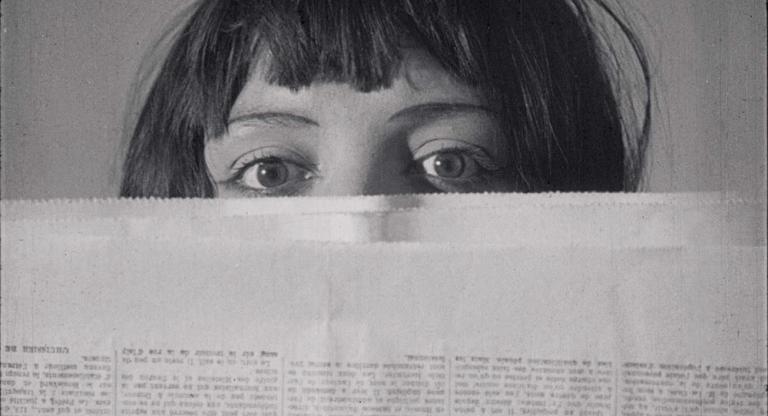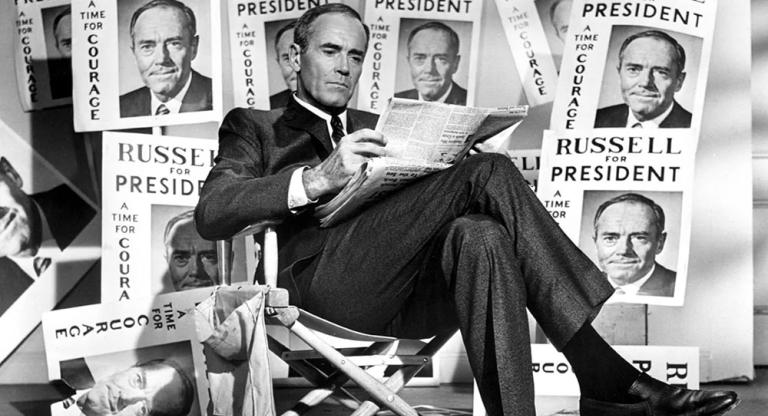Before Shapeshifters Cinema co-founder Kathleen Quillian met filmmaker Amy Reid last spring, she had been dealing with a lot of guys. “A lot of guys whose work I love,” Quillian clarified when the three of us met for iced tea and sandwiches at Shapeshifters Cafe, the cinema’s neighboring coffee and lunch spot. “But it was clear that there was really a gap in representation.”
Quillian has run Shapeshifters with partner Gilbert Guerrero since 2012, when they began it as an experimental screening series at Temescal Arts Center. In 2019, the two turned an old Victorian in the lee of Oakland’s I-980 into a microcinema-cum-microbrewery, and Quillian became the official director of its distinctively eclectic programming. After the pandemic, Quillian recalls, artists were eager to share their work—a welcome thing, since she didn’t have much time to solicit films. The trouble was, the vast majority of filmmakers reaching out were cis men. Then along came Reid. A doctoral student studying the legacies of 1970s feminist filmmaking at U.C. Santa Cruz, Reid was shopping around her first feature, Long Haulers (2020), an intimate doc tracing the highs, lows, and long highways navigated by three women truckers. The film wasn’t quite long enough to run alone, so Reid and Quillian collaborated on a fuller program that drew from works by Barbara Hammer, Vanessa Renwick, and Jodi Darby.
The Long Haulers screening was a watershed for Reid and Quillian, who enjoyed programming together so much that they never really stopped. Opening at Shapeshifters on June 8th and unfolding over “cycles” made up of 3-4 programs at a time, Reid and Quillian’s “Gravitational Lensing: Feminist Film Dialogues” series aims to redress the gap in representation Quillian had noted back in 2021. Programs will pair new works curated from an open call with older films by women, non-binary, genderqueer and trans artists; they will also incorporate the kinds of hands-on workshops that have made Shapeshifters a beloved hub for makers of all stripes. When I talked with Reid and Quillian in April, they were in the thick of selecting films from three hundred-plus submissions. They spoke to the significance of such a massive response, the stakes of the term “feminist,” and the kind of audience engagement they hope to cultivate, but not to control.
Jadie Stillwell: After the Long Haulers screening, how did the idea for the “Gravitational Lensing: Feminist Film Dialogues” series first come about?
Kathleen Quillian: We’d spent a couple weeks going back and forth thinking about all the filmmakers and films that might complement Amy’s, and we both really enjoyed it. I think I said, “Hey, maybe we should do some more programming together,” just hypothetically. A week or so later, Amy emailed saying, “No, really, we should do this again.” The Alternative Exposure Southern Exposure grant, which funds Bay Area visual arts projects, was due a few days after that, so we spent the weekend hammering things out.
Amy Reid: Originally, I’d imagined we’d do a full program of works by women from different periods, in different mediums, like what we did for Long Haulers. But Kathleen was really leaning toward an open call, so as to not just make it our vision of what “feminist films” might be—but this becomes a whole ‘nother conversation about the word feminism.
JS: Well, that’s a question I have. I wonder what the stakes of that term are for the two of you. I imagine it was difficult to define what a “feminist film” or filmmaking practice might look like.
KQ: Amy is very comfortable with the term feminist. In her mind, she was going into this thinking: this is going to be a feminist film series. But when we were applying for the grant, she noticed that I was dancing around the term. That was for many reasons. One of them is because we had talked about how we didn’t want to define the series ourselves. We wanted to form it out of whatever came to us. This is also why we have an advisory board to help us make decisions. Another reason is that Amy was telling me that some of the ‘70s filmmakers she was studying didn’t want to define themselves as feminist, for one reason or another.
AR: Yeah, it's complicated. It's a weaponized term. For the sake of the grant, you know, word counts are always a bitch. I thought, well, “feminist” just kind of succinctly says what we want to elicit in an open call. But that's the complicated thing with feminism. We understand it as a standard for so much, but when you're hard pressed to fully define it, it elicits a lot of different opinions and experiences. Historically, too. At the fundraiser we held for the series in early March, we showed Gunvor Nelson and Dorothy Wiley’s Schmeerguntz. That film was made in 1965, and it’s one of the first films clearly of the Women's Movement; it’s explicit about the pressures of things like childcare and domestic work. I take it to be a historic feminist film. But Dorothy Wiley, who I emailed with, said they didn’t really use that word.
JS: Was there other language that they were more comfortable with?
AR: I can't really speak for either filmmaker, but I've noticed in my dissertation research that women who were coming of age in the early ‘60s might not have latched onto the term feminism when it sprung up later in the decade. I think some artists, Chick Strand for example, really wanted to define themselves more within the world of experimental filmmaking, rather than feminist, because a lot of feminist films at that moment were more for consciousness raising than they were for circulating in art spaces.
KQ: Women artists, especially in the music world, I think still often don’t want to be identified as, like, a “woman” artist. It’s something we’re still grappling with. So our original title for the series was—oh, Gosh, it was really long.
AR: “Gravitational Lensing: Moving Image Dialogues by and about Women,” and then we had an asterisk, and under that we had “and women identified, nonbinary, transgender genderqueer pangender, and two-spirit."
KQ: We got some very thoughtful feedback from our community over Instagram, pointing out that it was tricky to use the term capital-W “Woman,” and then put everyone else essentially under that banner. The question was: how do we encompass everyone we want to include with all this crazy dancing around the issue? It became clear that the only term that made sense… was feminism.
JS: So you landed on feminism more than you necessarily aimed for it.
KQ: It was a hero’s journey to feminism.
JS: I’m curious about the collaborative aspect of this series. You’re working with each other, of course, but also with an advisory board made up of other artists and academics and, like you said, you got important feedback from the Shapeshifters community when workshopping the title. Could you speak a bit to this project’s investments in collectivity?
KQ: We're thinking of ourselves as the engine that makes this thing happen. We’re trying to surround ourselves with the same representation we want to uphold. It's not about our opinions. That was a big reason for the open call: we didn't want to start out making decisions. We wanted to start out with hearing the voices of everyone who wanted to have their voices heard, and then for us to pair those films that we decide to bring in with films that are historically important or significant.
AR: Or even forgotten, or that are emerging now from the ‘70s or earlier. I’ve been in school for so long, and I always wonder, how was I only ever taught Maya Deren? No disrespect to Maya, she’s an OG, but there’s so much out there. I want to include films that have all but disappeared. Based on the research I've done into early 1970s feminist films, those projects were so needed and are still needed, even if they were mostly coming from middle class, affluent white women. But we don’t want this series to perpetuate that exclusive perspective. For Kathleen and I, it’s about knowing that our own perspective is informed by our gender, sexuality, race, and class position, and wanting to really make sure that the voices that we include in the decision-making are not just from that perspective.
JS: As much as this program is about amplifying new voices, it also sounds like it’s a recuperative project. Feminism has always struggled with how to inherit its earlier iterations. How do we engage a difficult feminist history without getting away from our present day investments in a less essentialist or exclusionary politics? Pairing films from across time, identity, or context seems like one method of making contemporary and historical feminist moments speak to each other.
AR: The pairing approach is, I think, pretty standard for programming. But my own selfish interest in it does relate to my dissertation work. The question I have is: what is relevant about the 1970s feminist film? Within the history of feminism, as you said, there’s a question about what could still be interesting to our contemporary moment about watching a bunch of white women, I don’t know, give themselves a cervical exam. Maybe nothing. But for me, there is something there. I think sometimes, with the second wave, we throw the baby out with the bathwater.
JS: How do you hope your audiences engage with this series and with each other? Are there certain conversations that you’d like to see emerge out of these screenings?
AR: This is the balance we're trying to strike with the series: not needing or wanting to direct, control, or dictate, but to create an opportunity where there can be collective exchange and conversation. My dissertation work informs this, because there's not a lot of archival material about the discussions that took place during or after feminist film screenings. I certainly want there to be space for conversation and, potentially, a tried and true, “gonna come to every screening” group of people, not because each program is going to be so radically different, but because I think there’s a lot to cover.
KQ: If nothing else, I'm hoping this program will entice women to start their own series. If we’re unable to maintain a feminist space, the way we’re trying to do in this series, then the hope is that filmmakers will come together, they'll meet each other and form little offshoot groups. That would be great.
AR: That was the thing with the 1970s. It's like, man, there were feminist film distributors! And there were feminist consciousness raising groups and there were feminist film festivals and conferences and exhibitions. Some of these things still exist, but they don’t exist in the volume they used to. There aren't many opportunities specifically for women, non-binary, and trans filmmakers in the Bay, or even more broadly. There used to be Madcat [an international women’s film festival based out of the Bay], but it hasn’t run for years. There’s not a real effort toward feminist media, festivals, or programming in an annual, consistent way. There is definitely the hope that other people will take up the mantle.
JS: You got 379 submissions for this series. Do you think the size of the response testifies to a need for more feminist programming?
KQ: You know, we weren't completely explicit with our open call. It was just like, “If you want to apply, apply”—but with the idea that more established filmmakers probably wouldn’t. But we got a lot of women who I would not have expected. People who already have a platform, who you think of when you say “contemporary feminist filmmakers.” The fact that they were excited by it is in itself a testament.
AR: A filmmaker friend of mine told me that 80% of the films you see in festivals aren't submitted, they’re solicited. I think there's a real hunger for people to screen their work, and they don't often get the chance. In general, I think a lot about how separate we are, as audiences and as artists. We're not often in physical spaces together. Even though there are endless communities online, there's a lack of in-person engagement and a lack of places in which to explore ideas together. Shapeshifters is such a great space because it allows people to engage in that intimate and needed way around watching films together.
JS: What has the work of sorting through so many submissions been like?
AR: I don't think we fully knew what we were getting into. It's not that I didn't want as many people to submit, because it's been amazing to see so many works from across the world, although there are definitely blindspots. But it is a lot of labor to do, as two people. Sometimes I'm tired or hungry or not in the right mood to watch these films, but I still have to watch these films. I need to get past my own physical and mental limits. But how do you do that? How do you transcend the body?
JS: A classic feminist question.
AR: If we do this again, maybe that will be part of how we frame things. Not to be totally transparent, but hopefully this series is not a perfect thing. It’s an iteration. It's about a process and about an exchange and about flexibility and an organicness. That’s what feminism is all about. It’s the messy shit.
JS: Where did the language of “gravitational lensing” come from? My understanding, to butcher the program text, is that it describes a phenomenon in which the combined mass of collected celestial objects produces a shift in perspective, magnifying distant things. It strikes me as a great analogy for the effect the films in these programs might have on each other, or on their audiences.
KQ: That came from language we used in the grant, that we were looking for films by women made “across the space-time continuum.” It was my way of trying to succinctly say we would welcome films from all time periods, from anywhere in the world. While researching to make sure I knew what it really meant, I came across gravitational lensing. It fit quite nicely. I felt it encompassed what we were trying to do.
JS: I'm often thinking about the wave metaphor that we use to describe feminist movements. There have been a lot of critiques of that way of thinking about how feminist history works. One is that it implies a retreat, an ebb or a loss, every time there's a new feminist moment. This doesn’t do that at all. It's a consolidation of energy.
KQ: We're renaming the fourth wave. It's a lens now.
Gravitational Lensing is a new series dedicated to exploring the visions, voices, concerns and lineage of women, non-binary, genderqueer and trans filmmakers. The first program in the first cycle, “Body as Film/Film as Body,” will take place on June 8th. A special themed Material Cinema workshop led by Ellie Vanderlip will take place on June 9th.





